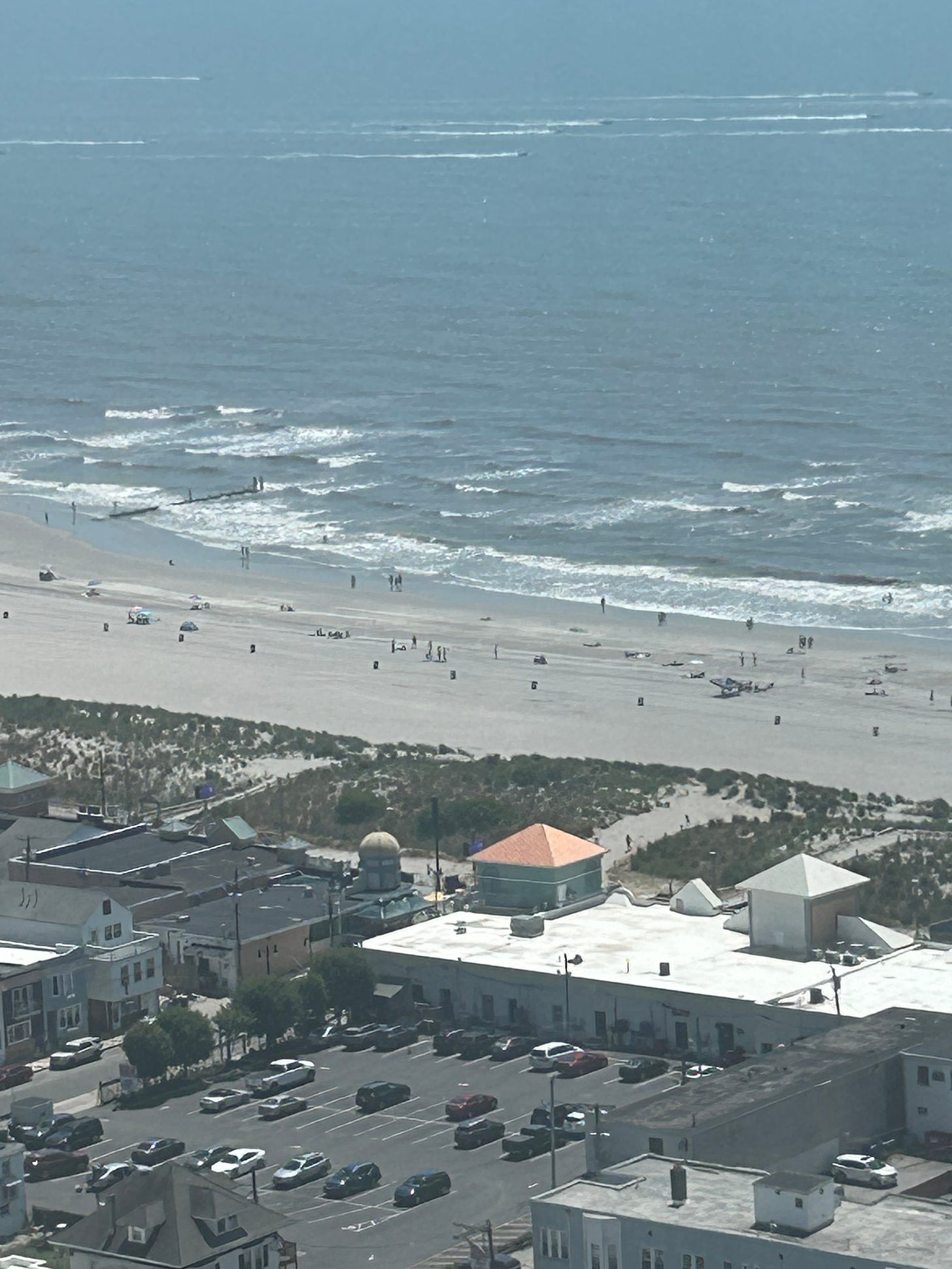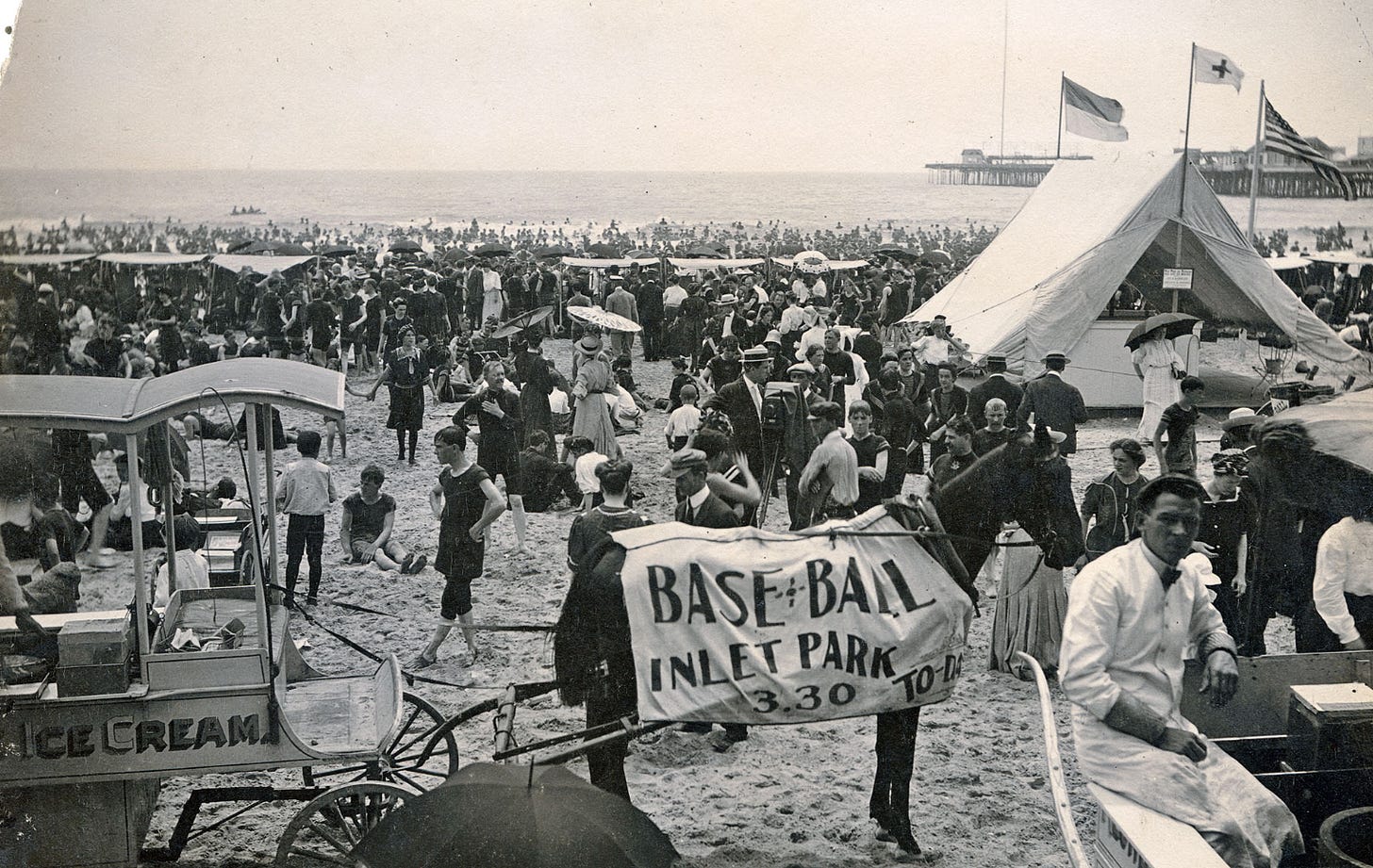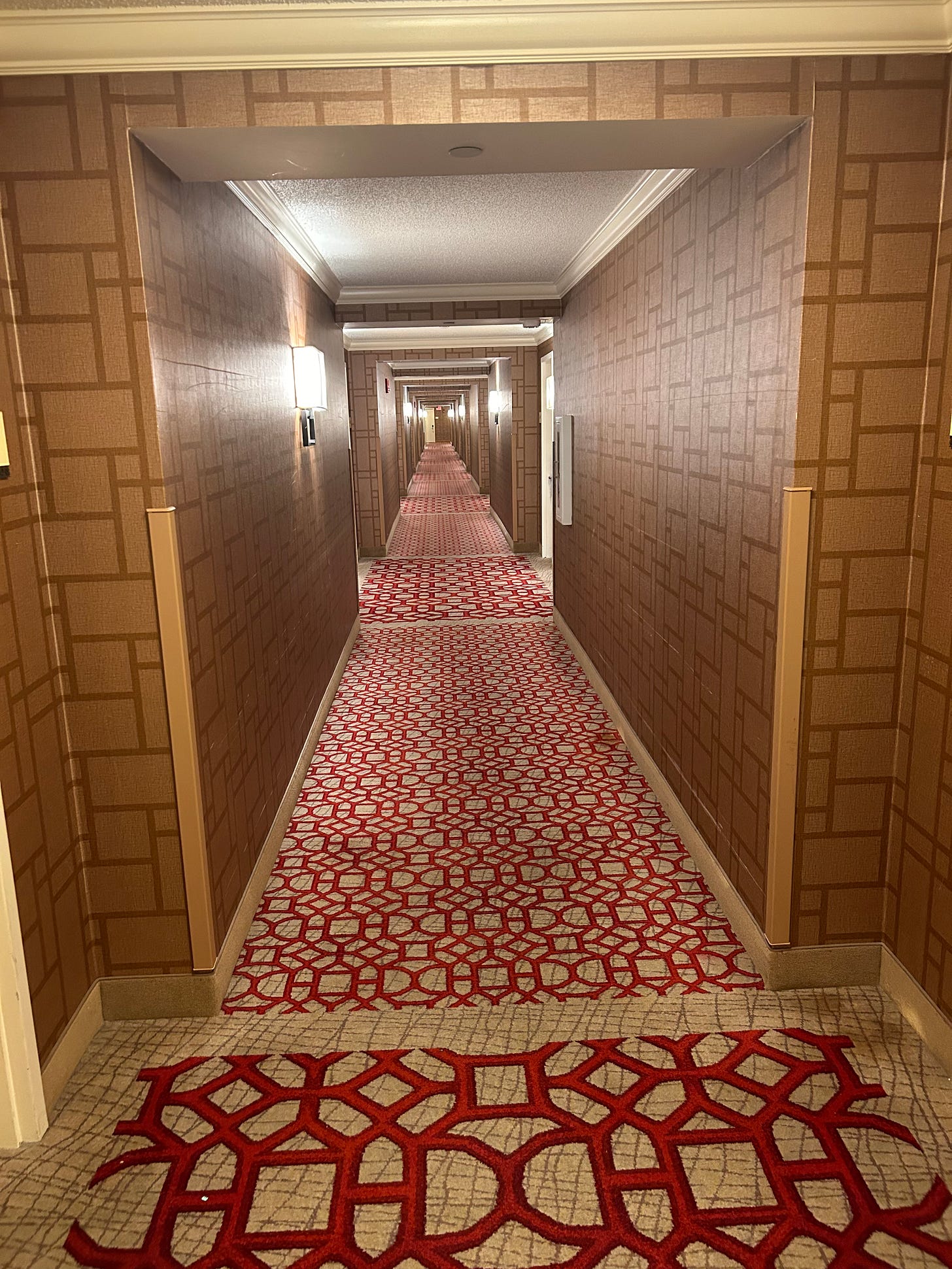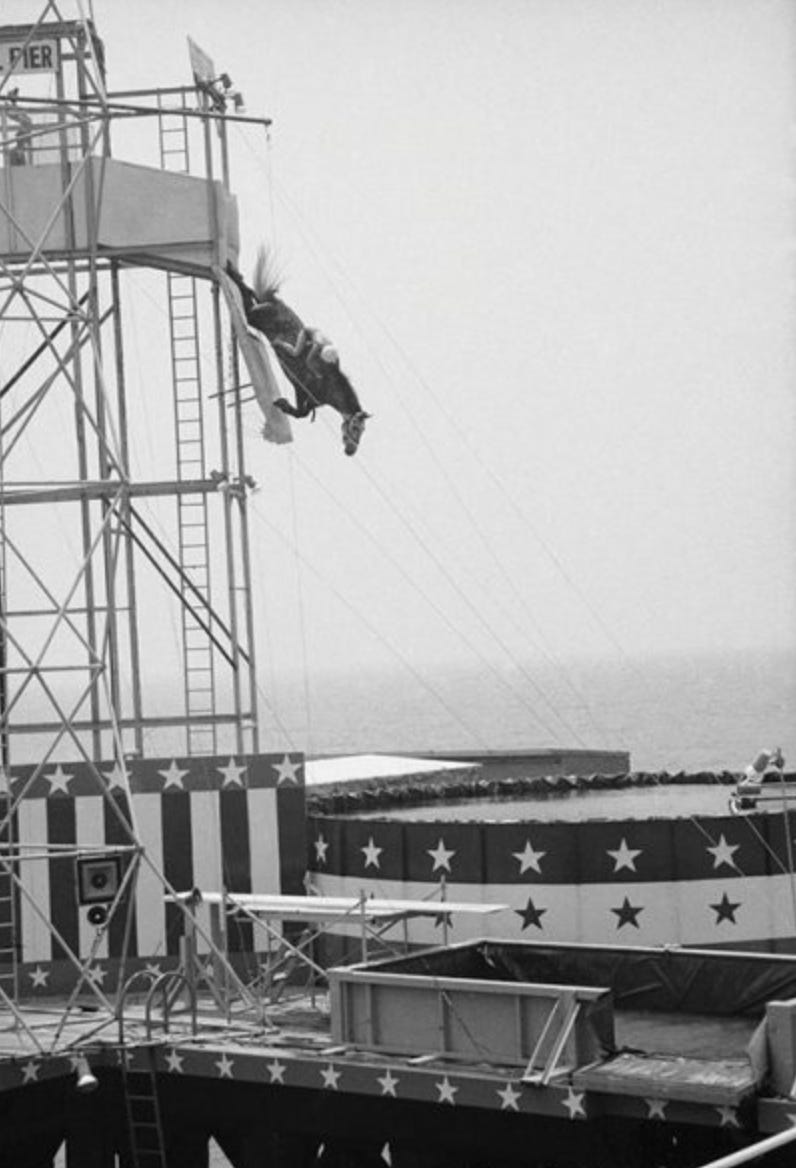If you’ve ever wanted to experience a Soviet resort community in Bulgaria during the dying days of the Empire, check out Atlantic City. I’m here now and – I want to put this as delicately as possible so as not to offend anybody – it’s a fucking dump.
Although I haven’t been back in years, I used to come to Atlantic City a lot as a kid. I grew up in central New Jersey, about two hours and change from the Jersey shore. My mom loved the slots, so maybe once a year, she and her partner would pull us kids out of school for the day, pile us into the back of our two-tone green Grand Chrysler, and drive south for the day. They’d dump us kids off at the arcade with a roll of quarters in our hands while they gambled. Afterwards, we might stroll the boardwalk or we might not. Of course, if I romanticize it now, it’s because I was seeing it through a child’s eyes and back then what my child’s eyes remember is that, back then, Atlantic City was a fucking dump.
(As an aside, I had my very first celebrity sighting in Atlantic City. We were playing video games here one day when the door to the hotel stairway opened and who should pop his head out to say hi to the kids? Bill Cosby, America’s favorite rapist.)
It shouldn’t be this way. Atlantic City ought to be one of this nation’s premiere vacation destinations. It’s located in the heart of the busy Northeastern corridor, it’s got very nice beaches, resort casinos, a convention center, a famous boardwalk, a storied history. It’s got everything. And nothing.
In the early part of the twentieth century, AC was a thriving beach community. Back when there was no – forgive the pun – AC, so hot Philly and New York folks would take a short train ride to the Jersey shore to escape the stifling city. You can see pictures of the beaches filled with gentlemen in straw hats and ladies in their swimming bloomers. There were high-diving horses and saltwater taffy stands and sunsets cavorting along the promenade.
As automobiles and airflight became cheaper in the mid-part of the century, Americans’ vacation options started opening up. People suddenly had more options, and Atlantic City never kept pace with the times, instead letting the city slowly bake in the sun. By the sixties and seventies, it had fallen into disrepair. The once proud summer homes were either chopped up or left to ruin. People left. Crime went up. The schools went down.
Gambling was seen as a way out for the city. To that point, the only legalized gambling in the nation was in Vegas. The good folks in the New Jersey state government thought they could compete with Sin City. It makes sense on paper – why not create an east coast alternative for people who don’t want to fly all the way across the country to lose a couple hundred bucks on blackjack? Think of the New York City customer base alone! So, on June 2, 1977, Governor Brendan Byrne came to the boardwalk to sign the Casino Control Act into law.
By the early 80’s, when I was popping endless quarters into Ms. Pac-Man here, Atlantic City was experiencing something of a renaissance. The casinos opened, people were once again traveling to the Jersey shore, tax revenue was flowing into the state treasury, and from the outside, it looked like Atlantic City might find its way back. It didn’t. Whatever money the casinos invested in Atlantic City stayed in the casinos, never finding its way into the pockets of the community. The real estate market remained flat and while the boardwalk got spruced up a bit, walk one block over and the only store signs were those offering cash for gold.
In 1992, the Foxwoods casino opened in Mashantucket, Connecticut, quickly becoming the largest casino in the world. Set in the woodsy lands of the Mashantucket Pequot Tribal Nation, Foxwoods quickly became the go-to East Coast destination for people looking for an adult weekend getaway. I have no idea how much of Atlantic City’s business Foxwoods took, but it must have been significant. The city continued to slide.

Now, with gambling legal in so many more places, there’s little reason for anybody to go there at all. There have been sporadic attempts to gussy up the place since, but none have really taken hold. A couple new glitzy casinos opened in the last decade or so, but, again, while they may provide some temporary relief as people come into town to check them out, the money isn’t flowing outwards, and so the downward spiral continues.
What you’re left with is what I experienced last night, a busted-ass resort town. The world’s most famous boardwalk, which tourists are afraid to walk on after dark. Even the Miss America contest, born in Atlantic City in 1921 relocated in 2020, strutting up the coast a hundred miles or so to the Mohegan Sun casino.
There are a few stirrings of life here. I saw a new outlet mall and a big Puma store and I guess there’s a fairly new distillery. But that’s little more than a fresh coat of lipstick on a corpse. Honestly, it’s a bummer. I’m rooting for Atlantic City. Like everybody else who comes to this bloodless town, I see so much potential. But how do you tap it? Far better minds than mine have tried to answer that question over the last several decades, and all of them have failed. So we’re left with what we have, another squandered American city.
But at least the poker is terrible.







Must have taken a huge strength of will not to have drop the failed Renaissance at the tiny feet of our corrupter in chief
Michael, your take on Atlantic City is flawless, and sad.
I remember visiting the Atlantic City of the 1950s as a young Boomer child, and it was amazing. Well dressed ladies wore mink stoles to stroll the boardwalk at night beside their cigar smoking gentlemen, wicker "rolling chairs" slowly traveled the boards, Mr. Peanut tapped danced at the entrance of Planter's Peanuts, frozen custard stands sold REAL frozen custard, Steel Pier was an amusement wonderland (despite that poor horse diving from a platform), lots of freshly made fudge and Fralinger's salt water taffy, Pork Roll Sandwiches, and much more. Not just t-shirt shops and cheap souvenirs.
The casinos killed the boardwalk and devastated the community, both residents and businesses.